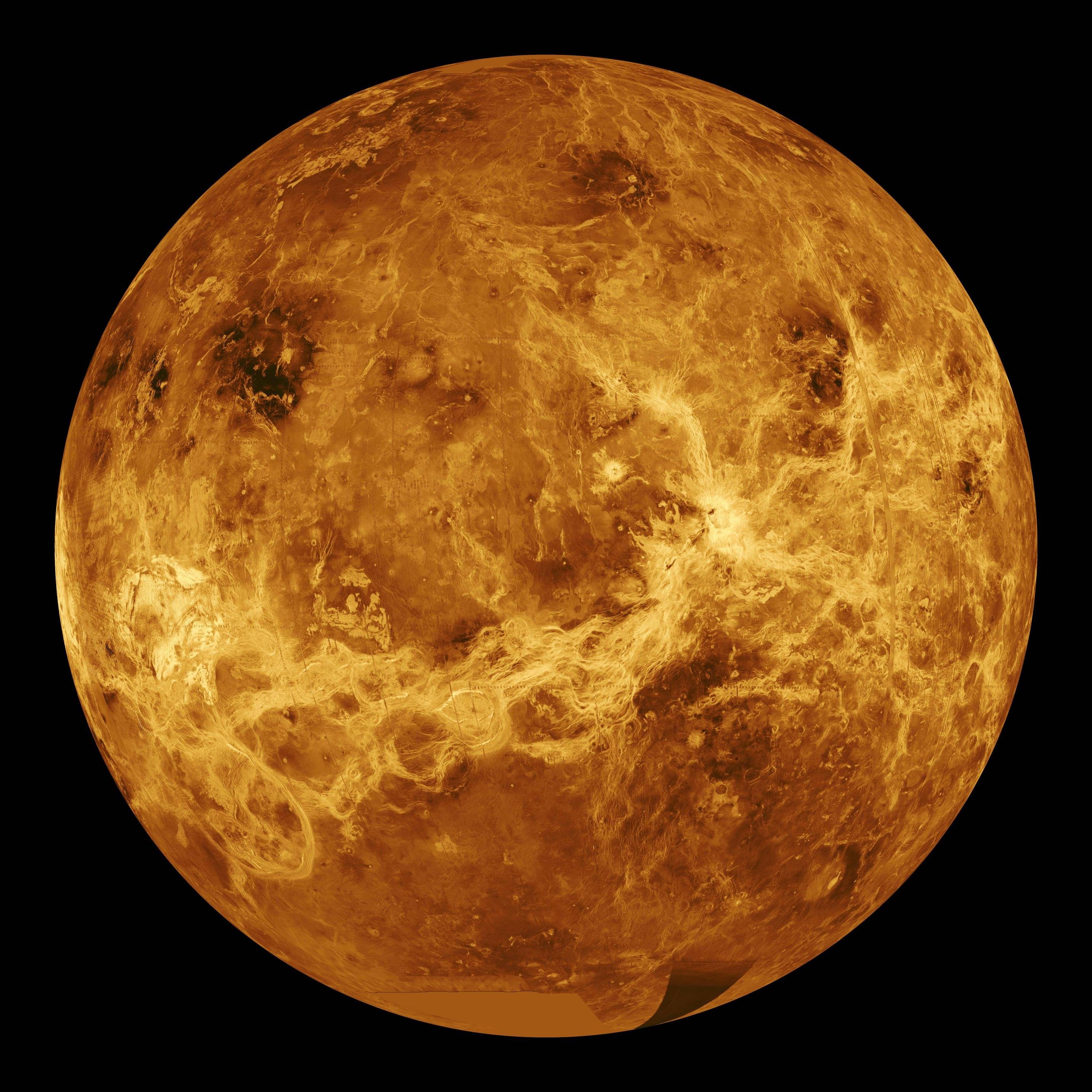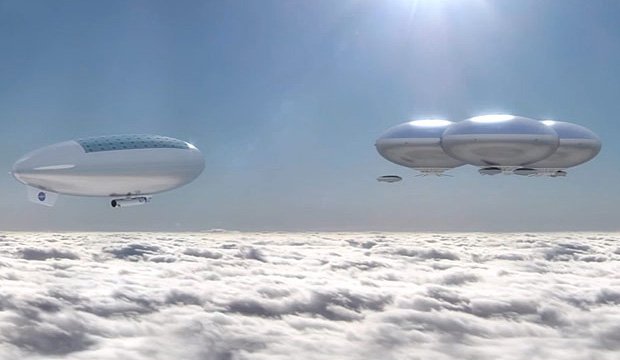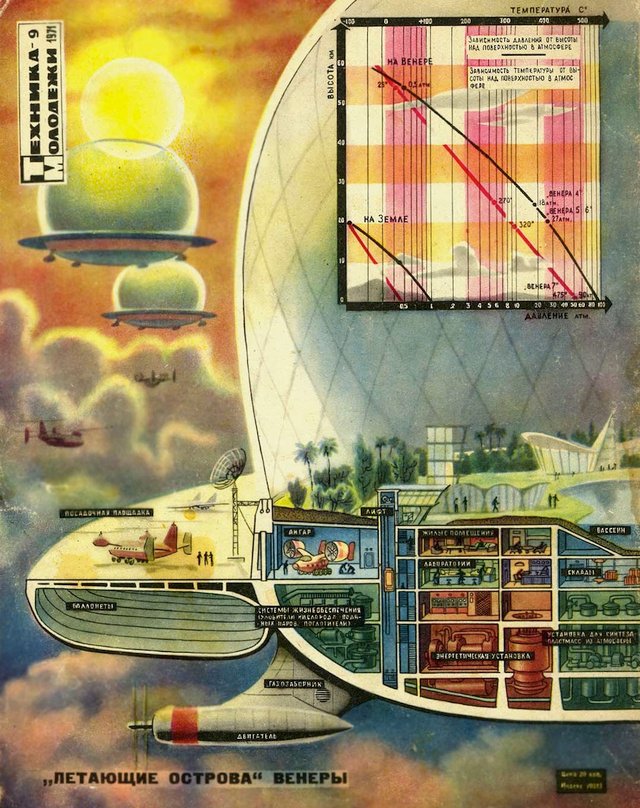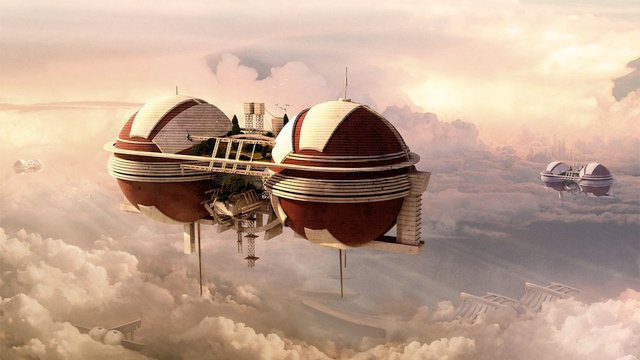
Venus. A sweltering oven of a planet. At 870 degrees farenheit, lead will melt on the surface. The volcanism and thick, heat trapping atmosphere conspire to make it the hottest planet in the solar system...even hotter than Mercury. Religiously minded astronomers could be forgiven for believing they discovered hell, just one planet over all this time.

Yet it's possible to colonize. Not only possible, but one of the more promising targets for human settlement out of the planets within our reach. How can that be? How could a human population possibly survive, much less live comfortably, in such a miserable boiling hellscape?

In the sky, it turns out. At an altitude of 31 miles, the atmosphere of Venus is a remarkably Earthlike place. Temperatures vary vetween 32 and 122 degrees farenheit. The pressure is roughly that of Earth at sea level. The atmosphere protects from the radiation which endangers potential colonies on Mars or the Moon, and best of all, Oxygen is a lifting gas on Venus! The composition of the Venusian atmosphere is such that Oxygen is 60% as buoyant in it as Helium is on Earth.

This means that you could use the gas bag of your blimp or similar sky habitat as living space. Not some tiny gondola hanging beneath it, the entire interior volume would be available. NASA isn't even the first to think of this. Back in 1971, Soviet scientists were drawing up design reference studies for Venusian sky colonies with Earthlike landscapes within immense bubbles:

Because no pressure differential would exist between the inside and outside of the gas bag, leaks would not be immediately life threatening. Colonists could go outside wearing nothing more than regular clothing, a medical style oxygen mask and goggles (the atmosphere of Venus, even at that altitude, is mildly acidic and would irritate your eyes.)

So, what's the downside? There are many, actually. Sure it's possible to establish living space on Venus. But then what? You can generate power while in the sky using solar panels, but where do you get water? How do you obtain metals with which to construct new habitats? Venus is indeed a potential home for humanity, but not a self-sufficient one. It would be forever reliant on imports from Earth, or a colonized/terraformed Mars.
Don't let that stop you from fantasizing about Venusian sky cities, though. We have the technology to do it, and may conceivably have the need someday. As you know from this prior article of mine, sky cities on Earth are entirely feasible from an engineering standpoint. Perhaps it's just a question of waiting for the need to arise, or for a space elevator to slash the cost of human activities in space.

